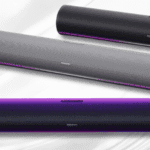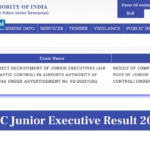Language has never been static. It grows, bends, reinvents itself, and mirrors the societies that use it. In today’s digital-first culture, words no longer emerge just from literature, academia, or traditional journalism—they are born in TikTok comments, YouTube memes, fandom forums, and even remote work group chats. A striking example of this shift is Cambridge Dictionary’s recent update, which saw more than 6,000 new words and phrases added to its pages.
Among these additions are “skibidi,” “tradwife,” and “delulu”—quirky terms that reveal much about our cultural moment. Their inclusion proves that dictionaries are no longer only about preserving tradition; they’re about documenting the pulse of how we communicate now.
What New Words Made It In?
Cambridge Dictionary’s latest update covers a wide spectrum of neologisms, slang, and workplace jargon. But a few words have stood out because of their fascinating origins and cultural significance.
Skibidi
“Skibidi” began as a nonsensical term linked to the viral “Skibidi Toilet” YouTube series—a bizarre yet popular internet phenomenon featuring talking toilets and surreal humor. The word itself doesn’t carry a fixed meaning. Depending on the context, it can mean “cool,” “bad,” or serve as filler language just to make people laugh. Its rise highlights how internet absurdity has jumped from private jokes into mainstream recognition.
Tradwife
A portmanteau of “traditional wife,” the term describes a married woman who embraces conventional domestic roles such as cooking, homemaking, and child-rearing. It’s often used in online communities where women showcase or advocate for this lifestyle, especially on TikTok and Instagram. The term is deeply polarizing—some celebrate it as a form of empowerment and choice, while others criticize it for romanticizing outdated gender norms.
Delulu
This short, catchy abbreviation of “delusional” is perhaps the most telling of modern internet humor. Commonly used in fandoms and casual banter, “delulu” describes someone entertaining far-fetched fantasies—like believing their favorite celebrity will notice them or imagining unrealistic romantic scenarios. It blends irony with self-awareness, reflecting how younger generations often poke fun at their own over-optimism.
Other Notable Additions
The new dictionary update isn’t just about memes. It also includes terms that reflect shifts in workplace culture, environmental consciousness, and evolving relationships:
- Mouse jiggler – A small device that mimics mouse movement, ensuring a computer stays “active” during remote work.
- Work spouse – A close colleague of the opposite sex with whom one shares a strong bond, similar to a marriage partnership, but entirely professional.
- Forever chemical – A term for toxic pollutants that linger in the environment for decades, raising awareness of long-term ecological challenges.
These words show how even everyday realities—whether working from home or confronting climate issues—shape the language we use.
Why Add These Words Now?
Cambridge Dictionary doesn’t add words on a whim. The process is backed by research from the Cambridge English Corpus, a massive archive containing over two billion words of written and spoken English. Analysts track how frequently new terms appear, the contexts in which they’re used, and whether their popularity persists over time. Only words with staying power and relevance earn a spot in the dictionary.
In other words, while a meme may spark a phrase, it’s the sustained use across communities and media that guarantees its legitimacy. Words like “skibidi” or “delulu” may have roots in niche internet subcultures, but once they migrate into broader conversations, their permanence becomes undeniable.
What These Words Reveal About Us
Language reflects not just communication but also culture. The recent additions offer fascinating insights into how society is evolving.
1. Internet Humor Goes Mainstream
“Skibidi” illustrates how digital absurdity isn’t just entertainment anymore—it’s shaping real language. Something that started as gibberish in an animated video now exists in a world-renowned dictionary. It’s proof that memes are not frivolous—they’re cultural artifacts.
2. Tradition vs. Modernity
“Tradwife” is more than just a label; it encapsulates ongoing debates about gender roles. For some women, identifying as a tradwife is an empowering choice, reclaiming domestic life in an era of hustle culture. For critics, it risks normalizing restrictive stereotypes. Regardless of stance, its dictionary entry validates the fact that this debate is shaping public discourse.
3. Playful Self-Awareness in Fandoms
The rise of “delulu” is emblematic of online communities that thrive on irony. Younger users in particular embrace it as a lighthearted way to acknowledge their fantasies, blurring the line between sincerity and sarcasm. It speaks to a generational style of communication where exaggeration and humor soften vulnerability.
4. Shifts in Work Culture
Post-pandemic life has transformed workplaces, and language follows suit. “Mouse jiggler” and “work spouse” reflect not just new realities but also the way people cope with remote work challenges and navigate office relationships. Our vocabulary grows as our professional lives evolve.
5. Environmental Awareness
The inclusion of “forever chemical” highlights how urgent global issues enter everyday speech. When people can name a problem, they can talk about it more effectively—and that helps drive collective awareness and action.
The Backlash: Language or TikTok Slang?
Not everyone applauds these updates. Some critics argue that adding terms like “skibidi” lowers the standards of English. Online commentators mocked the move with sarcastic remarks like, “English is no longer a language, it’s a TikTok comment section.” Others fear that the inclusion of such slang risks diluting the richness of the language.
But this criticism isn’t new. Historically, every generation has resisted the addition of slang and informal words to dictionaries. From “selfie” to “blog,” terms once dismissed as fads are now indispensable. Dictionaries aren’t prescriptive rulebooks—they’re descriptive archives, documenting how language is actually used. “Skibidi” isn’t a degradation of English; it’s evidence of how humans find new, creative ways to connect.
From Trend to Permanence
Some words, like “delulu” or “skibidi,” may feel fleeting. But their inclusion underscores a bigger shift: language is no longer solely influenced by books, academia, or broadcast media. The internet—especially platforms like TikTok, YouTube, and Reddit—is now a central arena for linguistic innovation.
By acknowledging these words, Cambridge Dictionary cements them as part of our collective linguistic heritage. Whether or not “skibidi” is still popular in five years, its entry today serves as a record of this cultural moment.
What Might Come Next?
Looking forward, the possibilities are endless. Could “skibidi” evolve into a versatile adjective used beyond internet humor? Might “tradwife” expand into shorthand for wider lifestyle debates? Could the popularity of “delulu” spark a series of similar playful abbreviations—like “selulu” (selfie delusion) or “joblulu” (unrealistic career dreams)?
Language is democratic, shaped by millions of micro-interactions online and offline. Every viral meme, every tweet, every inside joke could seed tomorrow’s dictionary entry.
Conclusion
Cambridge Dictionary’s decision to add words like “skibidi,” “tradwife,” and “delulu” is more than just a nod to internet culture. It’s a recognition that language is alive—messy, humorous, chaotic, and constantly evolving. Far from lowering the bar, these entries affirm the vibrancy of modern English, capturing how people truly communicate in the digital age.
Dictionaries are no longer just guardians of formal English; they are cultural archives, preserving the stories our words tell. And right now, those stories are being written in memes, fandom chats, and online communities. The next great word may already exist—in a TikTok comment or a Reddit thread—waiting to be discovered, shared, and eventually, defined.










